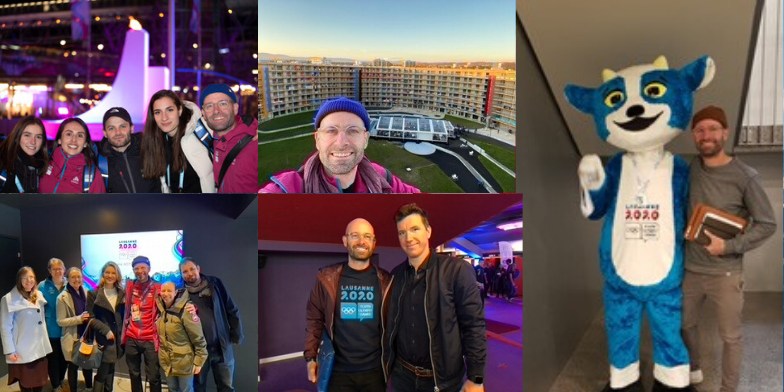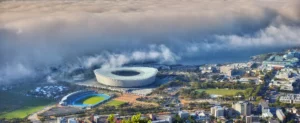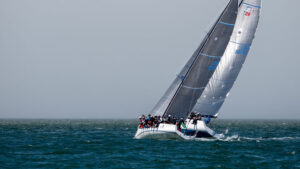ALUMNI SPOTLIGHT – OLIVIER DELAPIERRE, LAUSANNE 2020
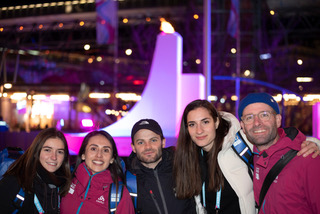
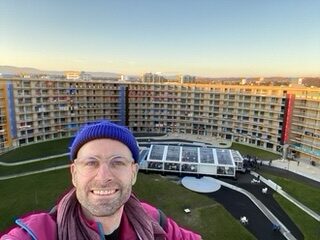
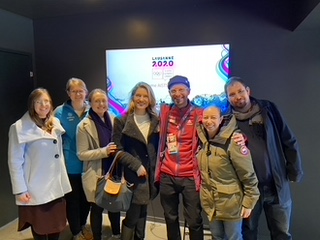
Earlier this year AISTS was the official institutional partner for the Lausanne 2020 Winter Youth Olympic Games. The entire class of 2020 volunteered across the event, and we also had client team projects and research papers related to the event. It wasn’t just the class that was involved though – we were proud to see many AISTS alumni holding key roles within the event, including Olivier Delapierre, AISTS 2008 alumni and Director of Relations & Engagement at Lausanne 2020.
In our latest Alumni Spotlight article, we caught up with Olivier to find out more about what it was like to work at Lausanne 2020, what drives him to work in sport, and what advice he has for others who want to follow in his footsteps.
What was your role at Lausanne 2020?
I was one of the four directors of the Organising Committee, heading the relations and engagement department. I managed more than 40 people who worked on projects like the ceremonies, the torch tour, the youth engagement program, the school visits during the games, the education program for the athletes, the brand, the hospitality, and so one. Lausanne 2020 was quite a small organisation which raised up to about 120 staff at Games-time.
My role was to head the department, to ensure projects were delivered as expected and in time. I spent lots of time in the development phase of each project. Concept and brainstorming were a key part of the job. Then I had the chance to have a very talented team that I could trust to deliver. I also spent lots of time working with the director-general on strategic matters, governance and acting as a “sparing-partner” to test his great ideas and proposals for the event.
What was it like working on the Lausanne 2020 Games?
Working for Lausanne 2020 was a chance of a lifetime and it exceeded all expectations from all stakeholders. I had the freedom to dream my perfect event and to make it real. The working pace was challenging but the atmosphere within the team made everything possible and reachable. The dynamics were incredible.
Why do you work in sport? What drives you?
I have always been interested in sport and physical activities. Not that I was especially good at sport, or ever expected to be an elite athlete, but practising sport has always been essential for my life balance. I am curious and love to learn new things and I like to choose the rather challenging paths in life.
Working in sport came to my mind when I turned 30, as a new challenge in my professional career. And so far, I have enjoyed every day spent in the industry. It is a rather relaxed and informal working environment, and this fits my personality I think.
Bringing new experiences to the public using sport or physical activities is probably what drives me today working in this field. The opportunities to use sport to reach people in their life and bring something positive to them is exceptional. Even more today with the pandemic situation, we can see the great appeal of physical activities from people to reach some kind of life balance in such a weird and surreal time.
What’s been the biggest challenge of your career so far and the biggest highlight?
The biggest highlight is definitely the lighting of the Lausanne 2020 Olympic flame in Athens. I was in charge of repatriating the flame to Switzerland. The emotions were of rare intensity and I will keep them for a long time with me.
The biggest challenge is probably never-ending. It’s keeping relevant and trying to foresee and understand the upcoming changes of the sports world. It is becoming very real and going very fast these days. I think it is the best stimulator I can get to continue working in that field.
How did AISTS equip you for your career?
The AISTS Masters help me connect with sport from a career perspective. There were lots of first hand contacts I made thanks to the program that I have used – and continue to use – later on in my career. As a very respected degree in the field, it definitely helped to open the doors of my first job at the International Olympic Committee in 2008. I think that overall, it gave me the opportunity to be part of an ecosystem where I am still evolving today.
What were the highlights of your time with AISTS?
The people within the class for sure. We are still in contact, we did our 10 year reunion in 2018 and it was great to see so many of them again. We had a great combination of people with some interesting and powerful personalities.
The football team also brings lots of great memories back. It was lots of fun, and a great way to get to know each other outside the classroom. I remember lots of great social moments with the class and I think this is one aspect I loved during that program. We were a really good gang!
With the benefit of experience, what advice would you give to people either considering a career in sport or advancing their careers?
I would advise everyone to pursue a career in sport with clear objectives in mind. Why do you want to work in sport? What do you want to achieve? Practicing sport or being a sport addict is not enough. From the outset it seems an incredible environment. And it surely is, but I have seen quite a few disappointments. Like in every industry I guess, but the difference is that the sports world should remain fun, and a positive experience for everyone involved.


